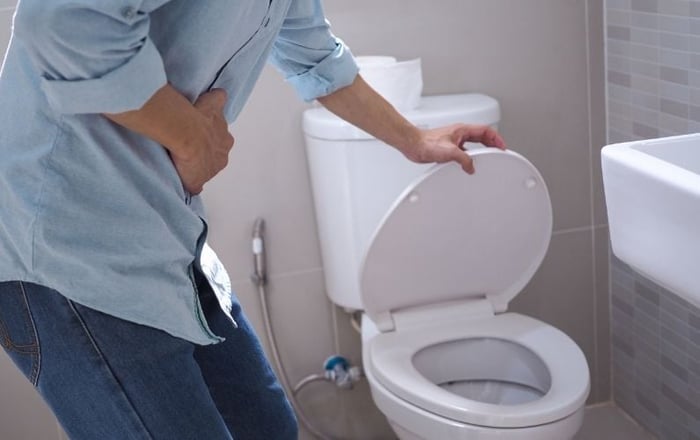Learn how to manage fecal incontinence and regain your confidence back with these expert recommendations and trusted products.
Being able to control when and where you go to the bathroom is an essential aspect of independent living. However, it's not possible for everyone.
If you are over 65 or have health conditions limiting your ability to control your bowel movements, you may know the feeling.
If you struggle with bowel control, know that there are solutions that can help. Not only will they help you regain your confidence, but you'll be able to enjoy all of the activities you love most.
Before we discuss treatment options, let's first go over what fecal incontinence is.
What is Fecal Incontinence: Causes, Treatment, and Prevention
What is Fecal Incontinence?
Fecal incontinence refers to the inability to regulate your bowel movements. Typically, this results in stool leakage from your anus. Also known as anal or bowel incontinence, it can vary from a tiny amount of stool leaking or passing gas to a total lack of ability to control bowel movements.
Fecal Incontinence Causes
There are several different causes of fecal incontinence. Some of them include:
1. Constipation
Fecal impaction can occur as a result of chronic constipation. When hard stool gets lodged in the rectum, this may happen. The feces can expand and damage the sphincter, rendering the muscles unable to prevent normal flow.
2. Chronic Diarrhea
The outcome of loose or watery feces is diarrhea. These stools may necessitate a bowel movement right away. Likewise, you may not have sufficient time to get to a restroom since the urge arises unexpectedly.
3. Damage to the Nerves
If the nerves that regulate sphincter movement are injured, the sphincter muscles will not close properly. In this case, you might not experience the need to go to the restroom.
4. Damage to the Muscles
Surgery in or around the anorectal area, injury, and constipation can damage sphincter muscles. As a result, the muscles are unable to keep the anus securely closed.
5. Dysfunction of the Pelvic Floor
Childbirth can cause injury to the nerves and muscles in the pelvis. Signs of pelvic floor dysfunction may not show up right away. Pelvic floor dysfunction can also affect males.
Signs and Symptoms of Fecal Incontinence

Fecal incontinence might happen once in a while after an episode of diarrhea, but it can sometimes be persistent or chronic.
Likewise, those affected may be unable to control their desire to pass stool. This urge might come on unexpectedly and prevent individuals from reaching the bathroom quickly enough. The medical term for this situation is called urge incontinence.
On the other hand, some people are oblivious to the urge to defecate. They suffer from another form of fecal incontinence, called passive incontinence.
Additionally, you may experience symptoms such as feeling bloated, gassy, having frequent diarrhea and constipation, or abdominal cramps.
How to Manage Fecal Incontinence
All this information might seem alarming. But don't worry! Here are some tips to ease your worries as well as your muscles.
1. Diet
Diet is one of the most important factors when it comes to controlling fecal incontinence. Fruit juices, caffeinated beverages, spicy meals, smoked meat dishes, legumes, dairy products, cabbage and similar vegetables are all items that might induce loose stools.
However, consuming things like potatoes, cheese, bananas, pasta, or peanut butter might make your stool thicker.
2. Exercise
Typically, most experts divide bowel training into two categories. First, you need to establish a regular restroom routine. By doing so, you can acquire more control over your bowel movements.
Second, you can perform activities that will help tighten the muscles surrounding your anus. A qualified therapist can show you how to activate the proper muscles and perform strengthening exercises.
3. Fecal Incontinence Products
Fecal incontinence products are one of the most affordable and accessible solutions for managing your symptoms. We offer many discreet options that range in absorbency and coverage levels.
Some of the best-selling products for fecal incontinence are pads, disposable underwear, and protective underwear. You can also find other products in our Incontinence & Ostomy Care collection.

4. Surgery
Surgery is usually reserved for situations when other treatments have failed. It is best to speak with a healthcare professional to determine which option is right for you.
Surgery to restore a sphincter is known as sphincteroplasty. During this procedure, the doctor removes the injured muscle, then overlays and sews the muscular ends firmly back again. As a result, the patient will have more stability, and surgery will strengthen the sphincter.
Final Thoughts
We hope you found these tips helpful for managing your symptoms. Even though it may be difficult emotionally to deal with fecal incontinence, remember that there are many options available to you.
Be sure to check out our Incontinence & Ostomy Care collection today to find the right product for your needs!
Finally, if your symptoms don't improve after trying these suggestions, see a doctor as soon as possible. There are a variety of medications and methods available to assist you in improving your intestinal health.










